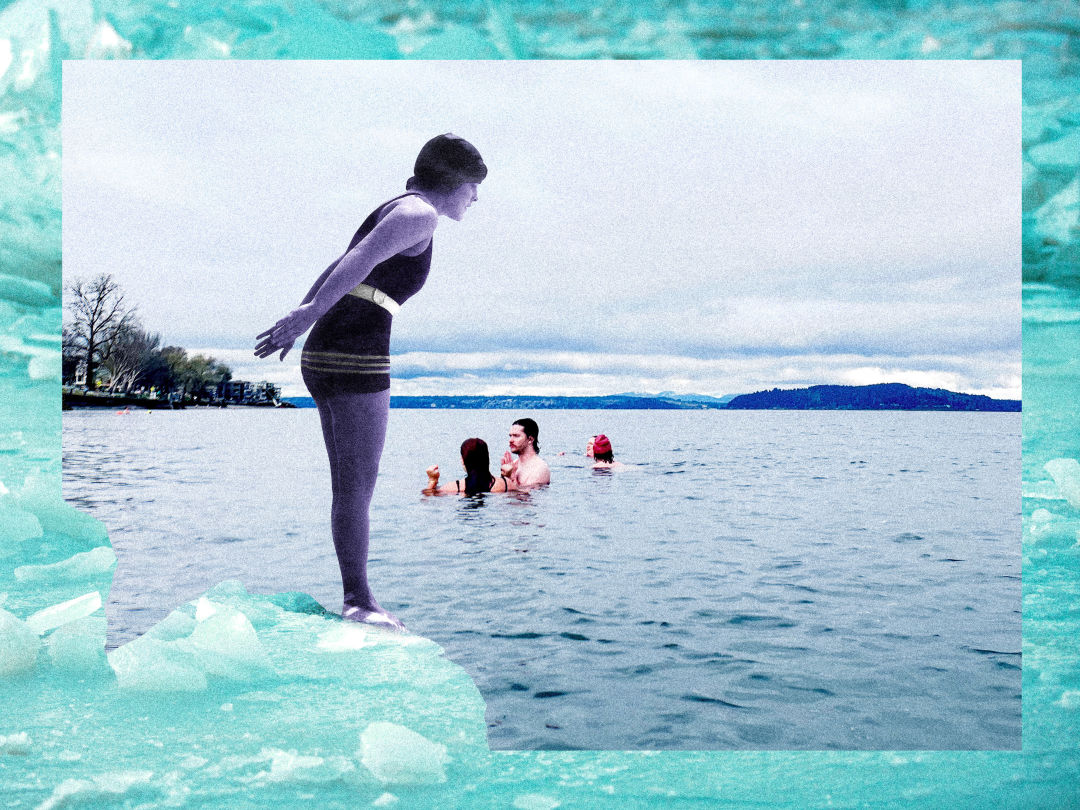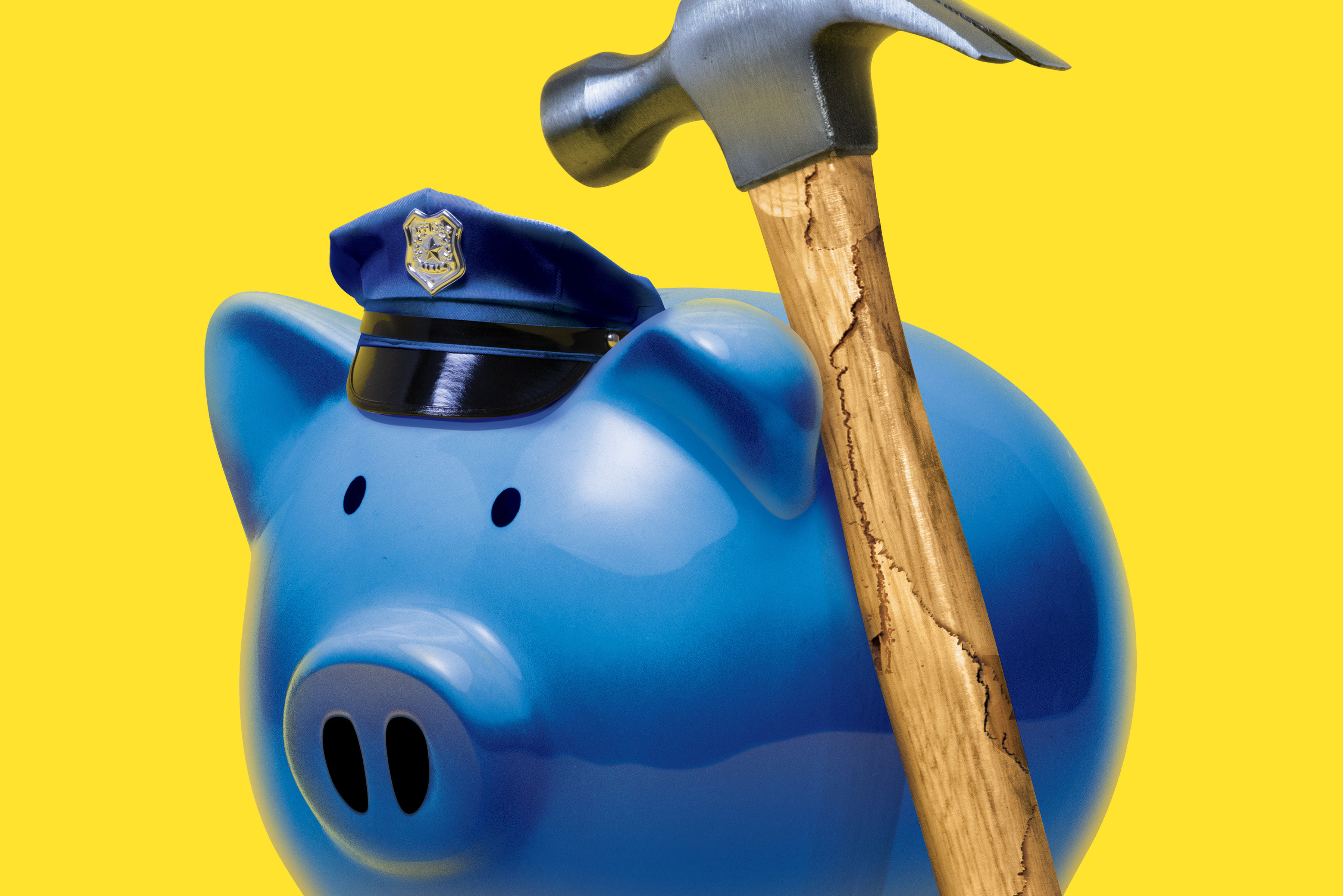Is the Cold Plunge Trend All It’s Cracked Up to Be?

In the course of writing a book about strong women, I got to meet some amazing athletes—a one-time World’s Strongest Woman, an American Gladiator, a 29-time Paralympic medalist. But one of the athletes who fascinated me the most was Jaimie Monahan, an endurance and ice swimmer. She’s the first person to complete the Ice Sevens Challenge, which involves swimming a mile on each continent in sub-41-degree water. It sounded absolutely excruciating—but was also oddly compelling.
Cold water is having a bit of a moment. Taking cold showers is the cool thing to do, and even weekend warriors are hopping into ice baths or cryotherapy chambers as a form of recovery. Despite the popularity, the research literature is mixed on the benefits. While there’s evidence that regular cold exposure can help with things like treating inflammation and regulating stress, it’s not clear whether these upsides result from the cold or from perhaps some other factors, like an active lifestyle, being out in nature, or simply having a positive mindset. Plus, many worry about the risks of cold shock or a rapidly increased heart rate.
Anecdotally, however, people like cold water. A former colleague, JP, used to wax often over Zoom about the joys of swimming in Lake Washington. “I do two things when I swim,” he told me when we recently chatted. “For the first 20 minutes, I breathe in and say ‘faith,’ breathe out and say ‘fear.’ For the next bit, I say these little prayers; with every stroke, I say one word of the prayer.”

Image: Haley Shapley
The result is a profound sense of calm. “I just totally zone out,” he says. “Once I almost ran into a dog. Once I almost ran into a tree. Once I almost ran into these fishermen. I swim crooked; I don’t ever sight; I’m in my own really cool meditative practice.”
It sounded lovely—minus almost ending up on the wrong end of a fishing hook. JP is a rational human, though, and he doesn’t get in the water until May 17. He’s out by October 17.
I was looking to take a dip a little sooner, so I turned to the Seattle Open Water Swimmers group on Facebook, filled with more than 3,000 people. There I met Myra, a relatively new convert to the world of cold water. After a New Year’s Day plunge at Alki, she was hooked.
“If I can feel the cold water, it means I know I’m alive,” she says.
As a single mother to a 3-year-old, she knows her son is always watching what she’s doing. (In fact, he asks to go dipping now, too, and likes to play “plunging” during bath time.) “You never stop being brave doing it because you always know it’s going to be cold,” she says. “That’s also why I love it, because it’s constant feedback that I’m brave enough to go in this water and do this really hard thing.”
It was time for me to be brave and move from interviews to experiential research. After borrowing a wetsuit and buying a buoy, I was ready to take the plunge. I decided to join the Notorious Alki Swimmers, a group well known for their year-round commitment to open-water swimming. But when I went to put on my wetsuit the night before, the fit was a little tighter than expected. Thick thighs may save lives, but they do not make shimmying into wetsuits a delight. Since I was down to just a swimsuit, I changed course and decided to join the Coldwater Collective for their Sunday morning Alki Beach plunge.
When I arrived at the Statue of Liberty bundled up in a ski jacket, I was surprised to see how many people were there—and more just kept coming (50-plus total, by my unofficial count). Organizer Nate told us to focus on breathing in and out. “After the first minute, the body should start calming down,” he said. “After a few more minutes, it’ll get easier as the body gets numb.” I think that was supposed to be his version of comfort.

Image: Haley Shapley
He encouraged us not to push it—unlike other activities where blowing past your physical limits can lead to growth, cold-water plunging requires respecting your body’s boundaries.
Soon, everyone rushed into the water in a raucous scene. Well, almost everyone. I was taking my time to observe the surroundings and myself. Look how flat the water is. My socks feel so cozy. Ooh, that’s a cute swimsuit.
In the back of my mind, a memory from Iceland sat like an iceberg, just barely perceptible. Before the crack of dawn, I’d hopped into a cold tub at a public pool and felt my breath leave my body. I was afraid it would take my soul with it. A local coached me through the panic, but I only lasted a minute, maybe two. I didn’t know how I’d fare in the Puget Sound. I remembered the words of Myra: “Go in as far as you’re comfortable and leave when you’re ready to leave. Just getting a toe in is getting in.”
Once I’d procrastinated as much as seemed reasonable, I peeled off my layers, plopped on a beanie, and waded in. To my—delight?—it was not that bad. Cold, for sure, but in a way I’d describe as closer to invigorating than debilitating. (Now might be the time to add that the water at Alki Beach was 48 degrees, with an air temperature about the same. The internet tells me the water in the Icelandic cold tub was 10 degrees, with an air temp in the 20s. Turns out there are different levels of cold.)
I watched the ferries crisscross in the distance, admired the graceful swimmers who went by every once in a while, and tried to take a photo of the “fun” I was having. That attempt was not successful. (“What happened to your face?” my mom asked when I showed her the results.)
So I didn’t look good cold dipping, but I did make it more than 12 minutes. By that time, everyone else had gotten out and congregated by the fire pit, where there were treats including cinnamon rolls, cream-filled strawberries, hot chocolate, and pancakes made by camper stove. While JP and Myra spoke convincingly of the peace that comes from being alone in the water, I felt a little bored, so I ditched the serenity for sugar.
Getting out, my body was sufficiently numb. I’d brought sandals, but it seemed too much trouble to stuff my feet into them. As I walked across the pavement, I was conscious that I should be able to feel its uneven texture, but I could not. Shortly after, though, sensation was restored and the sandals became more desirable. I jockeyed for a spot by the fire and exchanged stories with the other dippers, including fellow first-timers and some die-hards who come every week, even when it’s 19 degrees out.
Do I now intend to follow in Jaimie’s wake and swim in freezing water all over the world? I do not. But my morning dip did feel like a productive, social way to start the day—and finally getting home and taking a warm shower? That was pure bliss.




